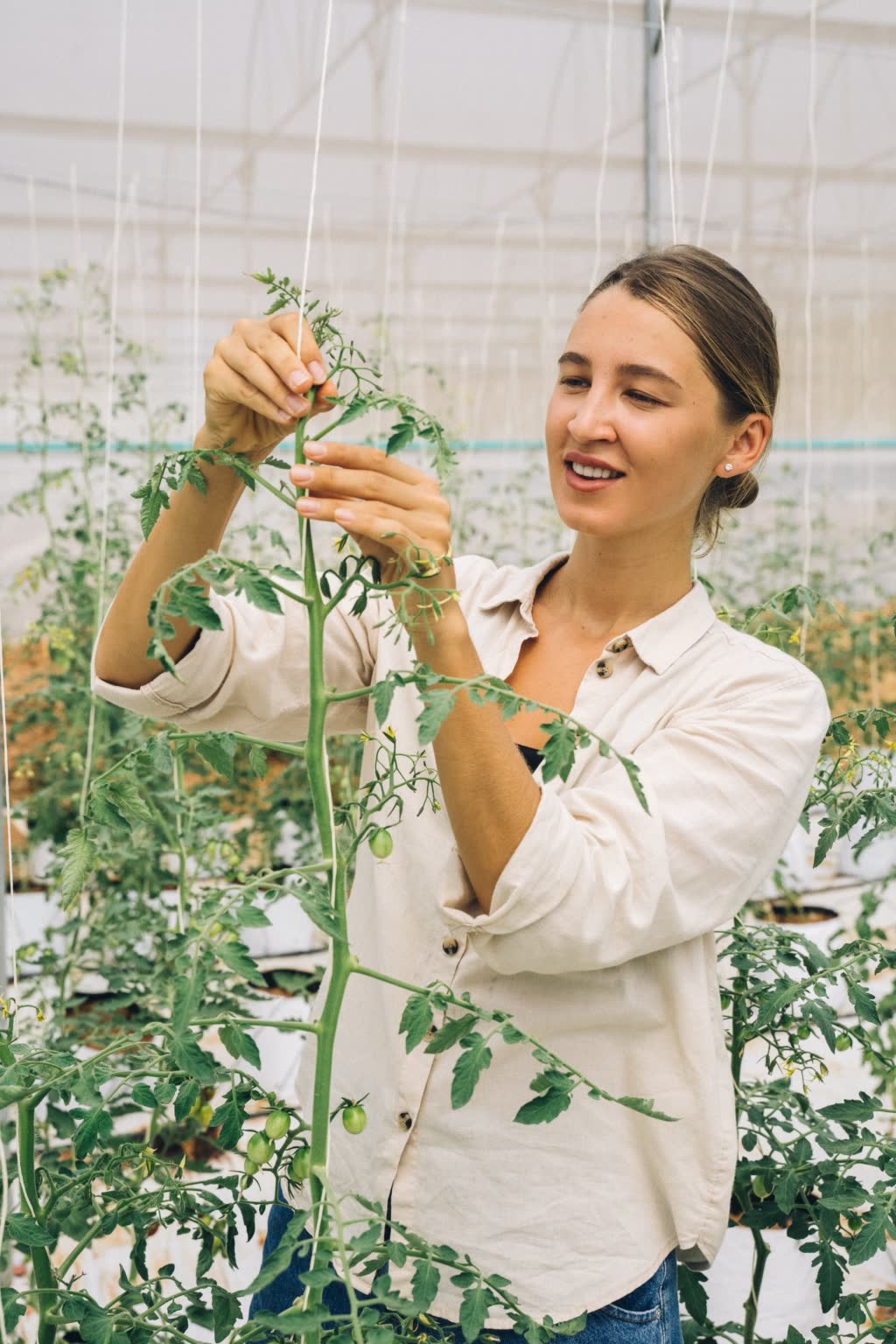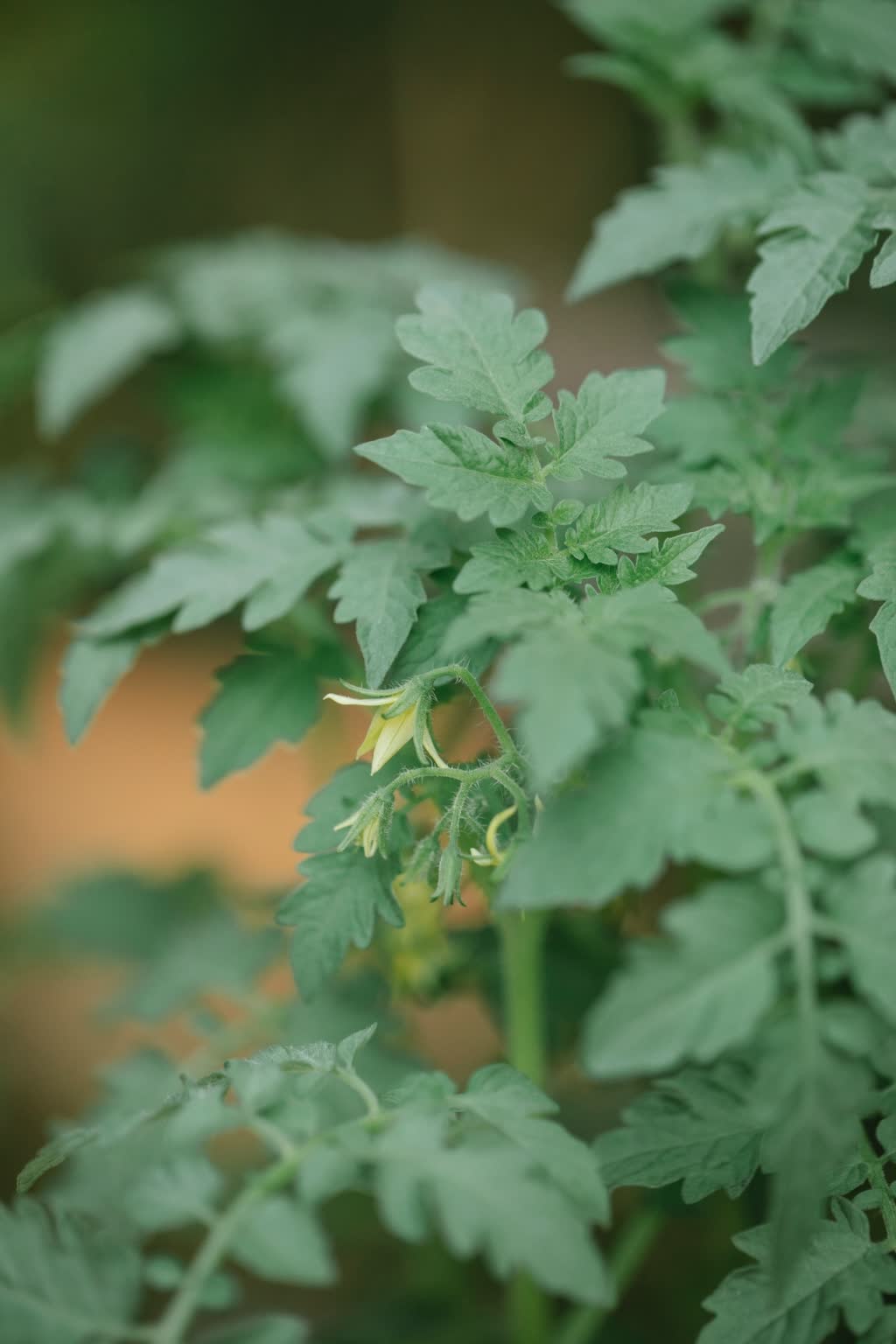
Ripening tomatoes late in the season will often help you harvest significantly more tomatoes than you might expect.
There are two undeniable facts about growing tomatoes:
- they are one of the most commonly grown plants in backyard vegetable gardens and while easy to grow in the right conditions,
- they are not easy to grow well. One problem often confronted by gardeners is the tomato fruit ripening slower than is desirable.
Often, tomato plants fruit extremely heavily and then become laden with many large green fruit, but do not ripen before the season changes; potentially damaging the fruit before they are ready to be picked - within the garden, there is little more frustrating than watching a nearly ripe crop of tomatoes being damaged by frost.
The other issue is that tomatoes that ripen naturally on the vine before being picked will nearly always produce the most flavoursome fruit. So, you want them to ripen naturally, but not to stay on the vine too long. So how can you encourage the fruit to ripen more quickly and produce those beautiful rich red and juicy fruit; all before seasonal changes occur?
Here are a number of practices that will encourage your tomatoes to ripen on the vine naturally:
Prune Vigorous Growth
Once the plant is mature, prune the excess vigorous growth. Don’t remove all the leaves, but do remove quite a few - please note, it is important that you do not do this before the crop of fruit has set. Pruning too early will result in a poor crop. This pruning will encourage the plant to put its energy into maturing the fruit rather than further leaf growth.
Remove Shoots From Leaf Junctions
This is actually necessary to help control and direct the growth of the plant throughout its growth. But, like pruning the vigorous growth, once the fruit has set, it will encourage the plant to direct its energy into the maturing of the fruit, rather than leaf and branch growth.

Prune the New Growth
New growth requires energy to be directed in to growth rather than the fruit. Remove this new growth in order to direct the plant’s energy into the fruit more quickly than would otherwise happen.
Pinch or Cut off Flowers
If you have got to the point of considering forcing the ripening of your fruit, it is already too late for flowers to set new fruit that you can expect to mature. Therefore, remove the flowers. As with the other points, this will prevent more energy being directed away from the existing fruit.
Remove Small Tomatoes
As with the flowers, it is probably already too late for these, so remove them.
With each of these practices, it is mainly about ensuring that the plant directs all available energy into the maturing and ripening of the existing fruit. There is no need for further growth of the plant itself, the development of new fruit, or the growth of existing but small fruit.

Hopefully, these late season tactics will help you reap as much harvest as you can from your tomato plants before the change in season gets the better of them.
I am an educator and passionate gardener and traveler. Throughout my adult life, gardening has been my passion, therapy, drive and source of purpose. Even as a child I had an intrinsic interest in plants and a desire to understand what makes them grow.
I distinctly remember the moment this began - my family was on one of our regular road trips from Hervey Bay; Australia. We were driving past a field of sugar cane. Dad pulled the car over and we cut a couple of sugar cane stems and brought them home for a treat. To be honest, I didn’t really like the taste, but I did want to try and grow it; and that is exactly what I did. It was then that my fascination, interest and passion for gardening and understanding plants began.
Fast forward a few years and I studied biological sciences and began what would be a 36 year career as a Biology educator. From this, I don’t only love gardening, but I also love helping others learn about gardening. I am also always looking for new ways to develop my own gardening knowledge. I like to think I am truly a life-long learner.
Fundamental to my beliefs about education is that learning is often best done as a part of a community - learning from others, and helping others to learn. It is this type of community that I hope iCultivate will be for its members - a community of gardeners, keen to share their gardening knowledge and wanting to learn about new ways to garden - a community built on the love of gardening.











Get involved!
Comments